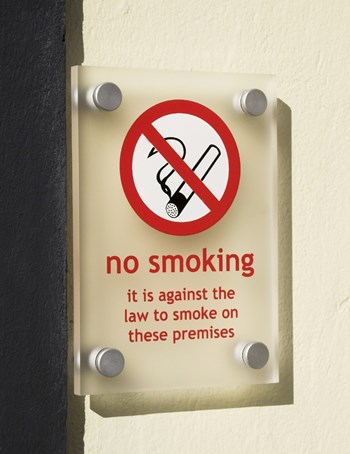
Every community needs an established set of rules and regulations for the organization to function properly and the residents to live in harmony with one another. HOAs are no exception. The rules and regulations of a condominium community are set forth in the governing documents, mostly in four documents that make up the administrative framework of the condominium association. They are, in order of importance, the master deed, the bylaws, the association’s certificate of incorporation and/or proprietary lease and, finally, the rules and regulations.
The certificate of incorporation and the declaration of covenants, conditions and restrictions (CC&R) are condominium documents that are rarely if ever changed, although sometimes a certificate or declaration will be altered if there are spaces in a building that don’t have shares assigned, or if a condo community expands. Proprietary lease usually only pertains to a cooperative form of ownership, of which there are not many in New Jersey. As more and more condo boards seek more expansive powers, they are looking to co-ops as models.
Co-op vs. Condo
A cooperative is a corporation—like ExxonMobil or General Motors, for example. Residents own shares of that corporation—the number of shares proportionate to the size of the apartment occupied. There is no master deed to the property rather a proprietary lease. In this sense, the residents don’t technically own their apartments, just the right to occupy them.
A condo, by contrast, is essentially the same thing as a house. Residents own the unit outright. They hold a deed to the property. They pay property taxes directly to the municipality. Thus, the condo board is not considered a landlord by the courts, severely restricting its powers to enforce rules.
The lion’s share of homeowner or community associations in New Jersey are of the condo variety, which means that boards are inherently weaker. Some of these boards, for a variety of reasons, seek greater power.
“When you have volunteers, and give them governing documents, there’s almost an innate responsibility to make sure every ‘i’ is dotted and every ‘t’ is crossed when it comes to rules and regulations,” says Gary Wilkin, president of Wilkin Management Group in Mahwah. That said however, overzealousness can be a problem.
“Some people want to regulate the people who are moving in and out of the community,” says Fran McGovern, the owner of McGovern Legal Services, LLC in New Brunswick. Unlike a co-op board, which can reject a potential buyer outright, condo boards have no authority to approve purchasers. Attempting to do so has put many a condo board member in legal hot water.
“They like to pass judgment on peoples’ lifestyles,” says McGovern. “Sometimes they pass judgment on things that are illegal to pass judgment on.”
Condo boards are allowed, under current rules, to have informational meetings with purchasers to do things like review the rules and regulations.
“Even in informational meetings, there are risks,” says McGovern. In Atlantic City a few years ago, he notes, a study by the NAACP found that condo boards were discriminatory, making African-American purchasers wait longer for “informational meetings” than their non-minority Caucasian counterparts.
Sometimes, the desire to keep certain purchasers out is benign—the denial of violent criminals and sex offenders to buy into a condo, for example. A change in the bylaws could keep such a person off the property—but this does not appear to be a rampant problem.
“I have over 200 co-op and condo clients,” says David J. Byrne, a shareholder attorney with the law firm of Stark & Stark in Lawrenceville, New Jersey, which also has an office and clients in New York, “and no one has ever asked me to prepare that kind of paperwork.”
Changing the Rules
The rule of thumb for changing the rules is to focus on what people are doing rather than who people are. Should a condo board limit the number of rented units in their community, for example? Are renters, on account of their transitory status, more likely to be bad neighbors than owners are? Maybe—but really, it’s academic. What you want is for the resident to stop playing the drums at midnight, or to not let garbage stink up the hall, not for the resident to buy in or rent.
“Rules are legal as long as they are predicated on conduct rather than identity,” says Byrne. In other words, a good rule would be to limit excessive noise, not to limit who can live in the community by trying to weed out renters. “You can regulate the conduct of the tenants,” Byrne says. “There’s no reason to discriminate.”
The key to the power of a condo board is in the bylaws. If power is granted in the bylaws, the condo board can throw its weight around. Sometimes there is an amendment to the bylaws that makes perfect sense, and that would make the community a better place. Changing the documents, even when it makes good sense can be difficult, though.
“It’s difficult to get the necessary votes,” says McGovern. “Most initiatives fail not because of opposition, but because of apathy.” Generally, changes to the bylaws require a supermajority—two-thirds of the residents. As with general presidential elections, it often happens that the majority of people don’t bother to vote.
McGovern has two suggestions to combat apathy. First, he says, a board should adopt a “divide and conquer” strategy, recruiting block captains to go door to door to get the requisite signatures. Second, and more controversially, he endorses offering extra incentivse.
“A $200 gift certificate to a local restaurant,” he suggests, “drawn from all the ballots cast.” Board members roll their eyes at this suggestion, especially as it costs the association money. But the incentive works. “You get more ballots cast because of it,” he says.
Furthermore, if a meeting is called, attended by the property manager and the attorney, and not enough votes come in to make the change, the meeting must be re-scheduled. Having the attorney and property manager present at a washed-out meeting can be more expensive than the $200 gift certificate, McGovern notes.
“It’s actually a savings, at the end of the day.” Savings are the name of the game in the current economic climate. This, too, has had an effect on how boards operate.
“In the go-go real estate market, you could hit people with all kinds of fees on closing, and it didn’t matter,” says Byrne. “Adding a couple thousand dollars to a 30-year mortgage, it’s no big deal.”
Boards would sometimes use closings as opportunities to generate revenue, requiring capital contributions when new residents bought in. This is changing now, because the buyers have the upper hand.
It’s About Control
Rules and regulations are necessary in communities because so many different people are sharing the same common areas.
“When you live in a community, you have to have some aesthetic controls, and some controls on behavior,” says Wilkin.
What everyone wants is to live in peace. But this is difficult because of one simple problem:
“Everybody has a different definition of enjoyment,” says Wilkin. “If everybody goes down to the swimming pool, you have to have some semblance of how to do it. Some people like music, some people like snacks, some people like glass bottles.”
The key to the rules is often not the rules themselves, but their enforcement.
“The implementation of the rules is where the unreasonableness develops,” says Wilkin. He tells of one condo board who wanted to fine a resident for leaving a garbage can lid slightly ajar. In that instance, a warning would be more tolerant than a fine—and create a sense of harmony rather than resentment.
Ultimately, the specific rules that are chosen to govern a condo or HOA are less important than that the implementation of these rules is, according to Wilkin, “fair and balanced.”
Greg Olear is a freelance writer and a frequent contributor toThe New Jersey Cooperator.






Leave a Comment